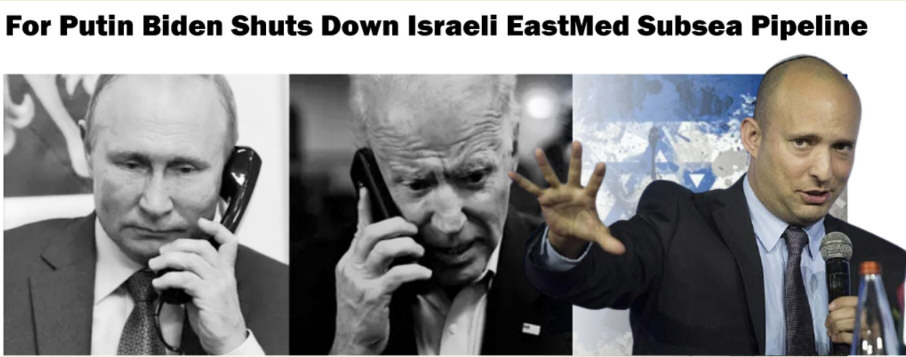
The US State Department, with orders from President Joe Biden, abruptly changed support for the Israeli East-Mediterranean Pipeline. The US government silently abandoned an eastern Mediterranean pipeline project that would carry Israeli gas through Cyprus to Europe this week by submitting a non-paper to Athens.
In July 2020, the Israeli government, with the support of U.S. President Donald Trump, authorized the establishment of the EastMed pipeline. The goal of the pipeline was to create a natural gas supply route from Israel to Cyprus and onto Europe, with the aim of reducing European dependence on Russian gas.
Greece, Cyprus and Israel signed an agreement in early January 2020 to construct the EastMed pipeline, to be completed by 2025, with an estimated cost of $7 billion. The project has been hailed by the European Union, as the pipeline would limit Europe’s dependence on Russian gas.
The pipeline was planned to be 1,900 kilometers long, with 550 kilometers overland and 1,350 kilometers under the Mediterranean Sea. Its capacity is planned at 10 billion cubic meters of natural gas per year with an option to double that figure.
Laying the longest and deepest subsea pipeline in the world, would fortify Israel’s position as an exporter of energy, a process which would have brought in tens of billions in revenues for the benefit Jerusalem and Israeli citizens in the coming years.
Europe has been suffering from an energy crisis that has seen natural gas prices soar and led to a massive rise in the cost of electricity. Natural gas production has been in decline for years, which has left it more reliant on imports.
Now, Russia stands poised to further cement its position as Europe’s bloc’s top supplier. Gazprom and its European partners have plowed $11 billion into Nord Stream 2, a 1,230-kilometer (764-mile) pipeline running beneath the Baltic Sea from Russia to Germany. At the same time, Russia, the largest supplier of natural gas to Europe, has allowed prices to go up because of geopolitical reasons.
Nord Stream 2 — Nord Stream is a system of offshore natural gas pipelines in Europe, running under the Baltic Sea from Russia to Germany.
Germany is in the final stages of signing off on Nord Stream 2, a pipeline that will make Europe even more reliant on Russian gas. The EU’s biggest economy will have to confront angst of its own. The energy-price surge will be disastrous for its industry. It has also triggered a jump in inflation, the economic indicator Germans fear most. And the new coalition government, which is divided over Nord Stream 2, has just overseen the closure of three nuclear-power plants



